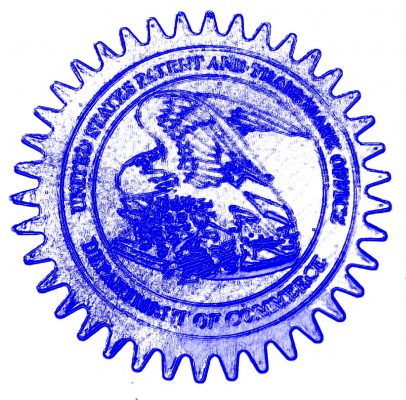Understanding Trademark Policy and Its Importance

Trademarks play a crucial role in today’s competitive business landscape by helping a company distinguish its products or services from its competitors. Trademarks are valuable assets which represent a company’s identity, reputation, and goodwill. As such, effective trademark enforcement is essential for maintaining the strength and value of these intellectual property rights.
The policy behind trademarks serves two primary purposes:
- Protecting consumers from confusion by allowing them to easily identify a company’s goods and services.
- Encouraging company investment in their brands by safeguarding them with exclusive rights to the marks.
This dual purpose incentivizes companies to maintain consistent quality and build brand loyalty while enabling consumers to make informed purchasing decisions.
What is Trademark Enforcement?
Trademark enforcement is the process of protecting these rights from unauthorized use or infringement. Without proper enforcement, trademarks could lose their distinctiveness, leading to consumer confusion and diminishing the value of a company’s brand investments. Therefore, it’s crucial for businesses to actively monitor and defend their trademarks.
Avenues for Trademark Enforcement
Cease and Desist Letters
One common approach is sending cease and desist letters. These letters serve as a formal notice to potential infringers, informing them of your trademark rights and demanding that they stop using the conflicting mark. Often, this is the first step in the enforcement process and can be effective in resolving disputes without resorting to more costly measures.
USPTO Proceedings
For registered trademarks, owners can initiate proceedings before the Trademark Trial and Appeal Board (TTAB) at the United States Patent and Trademark Office (USPTO). These proceedings include opposition actions against pending trademark applications and cancellation actions against existing registrations that conflict with the owner’s rights.
Litigation
When more serious infringement occurs, trademark owners can pursue trademark litigation in state or federal court. Lawsuits can address claims of infringement, dilution, or unfair competition. This avenue can provide the opportunity for more substantial remedies, including injunctive relief and monetary damages.
Customs Recordation
Another important aspect of trademark enforcement is customs recordation. By recording trademarks with U.S. Customs and Border Protection, owners can help prevent the importation of counterfeit goods bearing their marks. This proactive measure can be particularly effective for businesses facing issues with international counterfeiting.
Domain Name Disputes
In the digital age, domain name disputes have become increasingly common. The Uniform Domain-Name Dispute-Resolution Policy (UDRP) provides a mechanism for resolving conflicts between trademarks and domain names. This process can be a cost-effective alternative to litigation for addressing cybersquatting and other domain-related trademark issues.
Best Practices for Trademark Enforcement
Regular Market Monitoring
Effective trademark enforcement requires a proactive and strategic approach. One of the best practices is regular market monitoring. This involves searching for potential infringements in various channels, including online marketplaces, social media platforms, and trademark databases. By staying vigilant, businesses can identify and address potential issues before they escalate.
Prioritizing Enforcement Actions
When implementing a trademark enforcement strategy, it’s important to prioritize actions based on the level of threat to your brand. Not all instances of potential infringement warrant the same response. Focus on those that pose the greatest risk of consumer confusion or dilution of your mark.
Maintaining Consistency
Consistency is key in trademark enforcement. Regular and uniform enforcement helps prevent your trademark rights from being weakened or abandoned. However, this doesn’t mean you need to pursue every minor infringement aggressively. Instead, maintain a balanced approach that demonstrates your commitment to protecting your rights without appearing overzealous.
Litigation Strategies for Trademark Enforcement
When litigation becomes necessary, experienced trademark attorneys employ various strategies to protect clients’ rights:
Seeking Preliminary Injunctions
One common tactic is seeking preliminary injunctions, which are court orders that can immediately stop infringing activities while the case is pending. This can be particularly important in cases where ongoing infringement could cause irreparable harm to the brand.
Calculating Damages
Another crucial aspect of trademark litigation is damages calculations. Skilled attorneys work with financial experts to quantify the harm caused by infringement, including lost profits and damage to the brand’s reputation. This evidence is essential for securing appropriate compensation for the trademark owner.
Utilizing Survey Evidence
Survey evidence can play a significant role in trademark cases. Consumer surveys can demonstrate likelihood of confusion or trademark dilution, providing valuable support for the trademark owner’s claims. Experienced attorneys know how to design and implement effective surveys that will stand up to scrutiny in court.
Strategic Discovery
Strategic use of the discovery process is another key litigation tactic. Through carefully crafted discovery requests, attorneys can uncover evidence of willful infringement or counterfeiting. This information can be crucial in building a strong case and potentially increasing the damages awarded.
The Value of Experienced Trademark Attorneys
Given the complexity of trademark law and the potential consequences of missteps in enforcement, it’s advisable to work with an experienced trademark attorney. These professionals bring specialized knowledge and experience to the table, staying up-to-date on the latest legal developments and applying them effectively to each case.Experienced trademark attorneys can develop comprehensive enforcement strategies tailored to a business’s specific needs and goals. They can assess the strength of a case and potential risks, helping clients make informed decisions about enforcement actions. Their negotiation skills often prove invaluable in resolving disputes without resorting to costly litigation.For businesses operating in multiple countries, attorneys with international trademark experience are particularly valuable. They can navigate the complexities of cross-border enforcement issues, ensuring that a company’s trademark rights are protected on a global scale.
Summary: The Ongoing Nature of Trademark Enforcement
In summation, trademark enforcement is an ongoing process crucial for protecting a brand’s identity and maintaining its value in the marketplace. By understanding the various avenues for enforcement and employing strategic approaches, businesses can safeguard their trademark rights and prevent unauthorized use.While some aspects of trademark enforcement can be handled internally, the complexity of trademark law and the potential consequences of missteps make professional legal guidance invaluable. Contact our experienced trademark attorneys who can provide crucial expertise, develop tailored enforcement strategies, and effectively represent their clients’ interests in negotiations and litigation.Remember, consistent and strategic trademark enforcement is key to maintaining a strong and valuable trademark portfolio. By prioritizing this aspect of intellectual property management and working with skilled legal counsel, businesses can ensure that their brands remain protected and continue to thrive in today’s competitive business landscape.


